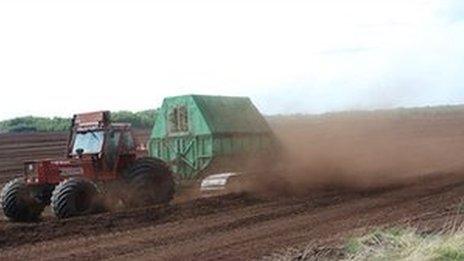Chat Moss peat bog bought by wildlife trust for restoration
- Published
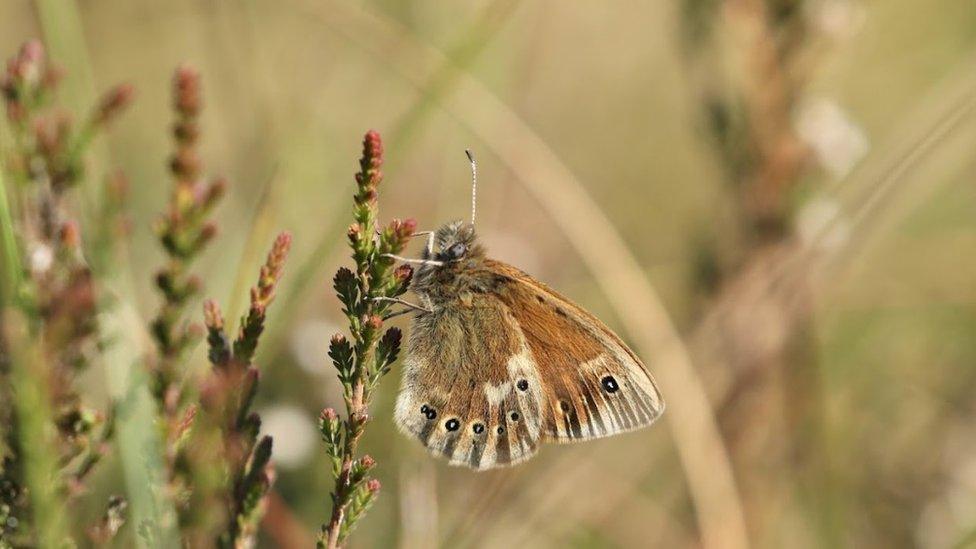
The trust said restoring the peat bog will help the population of heath - or argus - butterflies
An ancient peat bog has been bought by an environmental trust as part of its plan to restore wildlife in the area.
The Wildlife Trust for Lancashire, Manchester and North Merseyside has purchased Chat Moss with funding from Veolia Environmental Trust.
It said the land, near Astley, Wigan, is the final piece in its plans for an "ecological corridor" in the region.
Astley and Bedford mosses, which are both nature reserves owned by the trust, lie on either side.
Both are designated sites of special scientific interest (SSSI).
'Perfect habitat'
The trust said the land, like many lowland peat bogs, has been drained to be used for agriculture and the degraded, exposed peat soil is now emitting large amounts of greenhouse gases into the atmosphere.
It said carbon dioxide (C02) emissions from damaged lowland peatlands amount to 3% of the UK's annual fossil fuel emissions, and in the North West, 98% of lowland peat bogs have been destroyed.
Work will now start to restore the landscape back to its natural state, changing the area from drained agriculture to re-wetted bog.
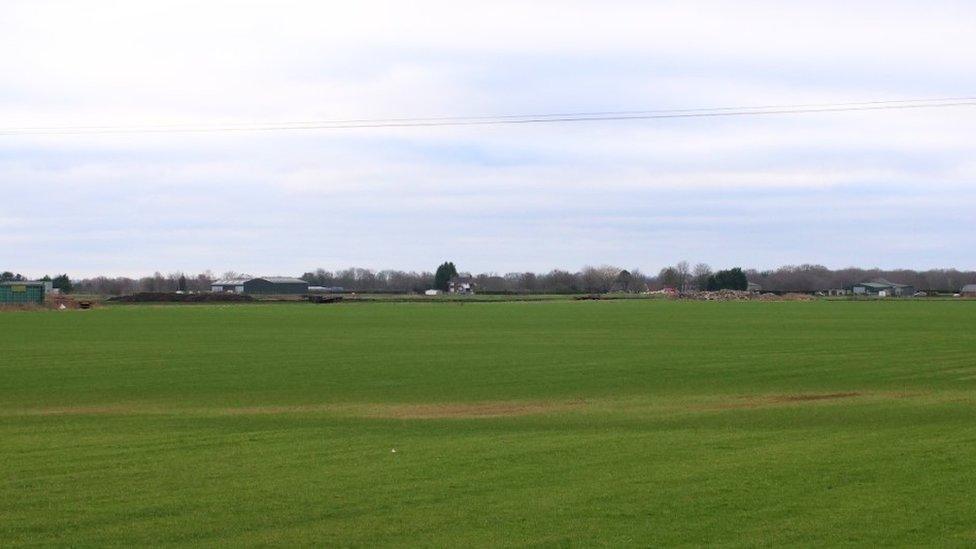
The land is surrounded by Astley and Bedford mosses
Once the ground conditions are back to their natural boggy state, native bog vegetation will be reintroduced to help transition back to a natural peatland.
Sarah Johnson, head of peatland nature recovery at the Wildlife Trust for Lancashire, Manchester and North Merseyside said: "The site is another piece in the Greater Manchester peatland puzzle and will help us create an ecological corridor for nature and wildlife to thrive.
"It will be especially important to our local population of Manchester argus butterflies that we were able to reintroduce to neighbouring Astley Moss SSSI, thanks to previous funding from Veolia Environmental Trust."
Caroline Schwaller, chair of the Veolia Environmental Trust said: "We're delighted to be able to continue supporting the fantastic work of the Lancashire Wildlife Trust in protecting our planet's precious peatlands.
"Not only will this project help reduce carbon emissions, but it will also provide a perfect habitat for biodiversity to flourish."

Why not follow BBC North West on Facebook, external, Twitter, external and Instagram, external? You can also send story ideas to northwest.newsonline@bbc.co.uk, external
Related topics
- Published14 November 2022
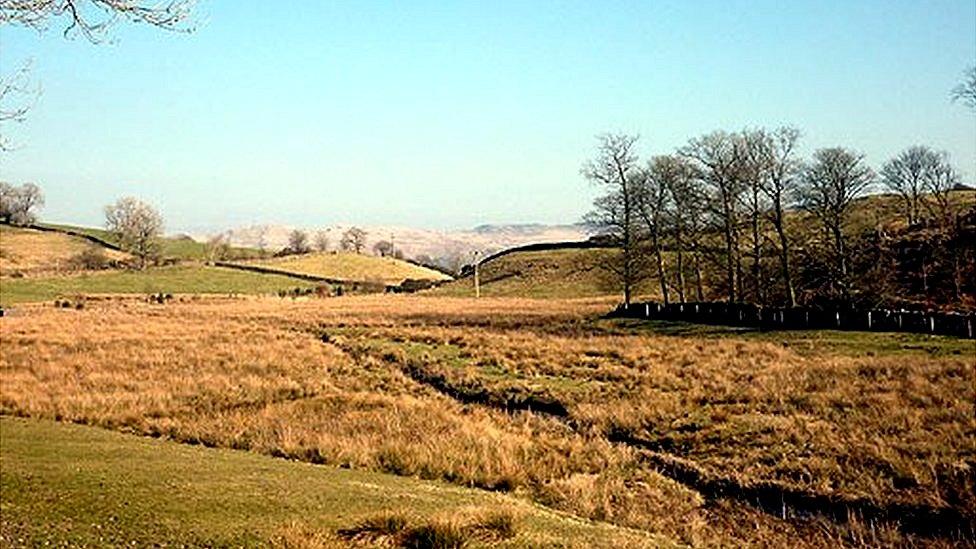
- Published2 July 2022
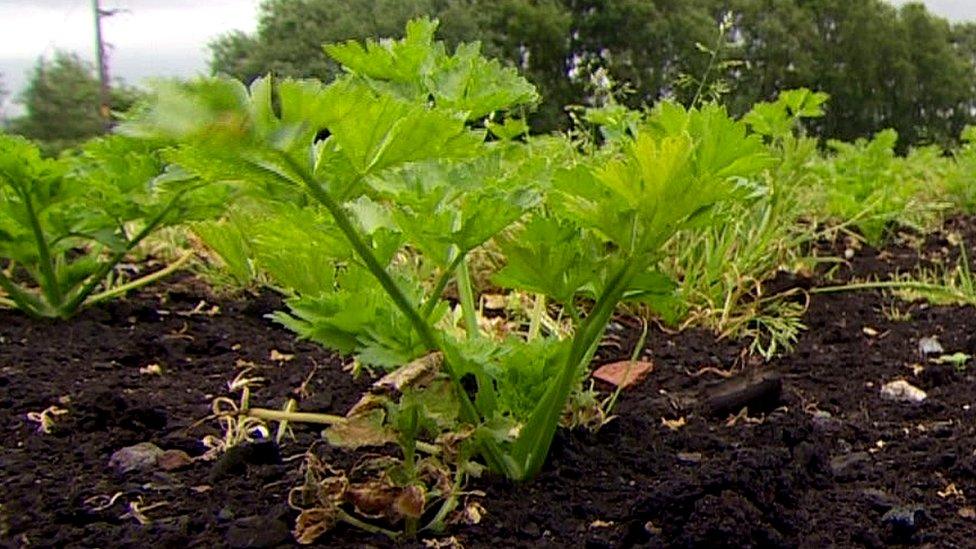
- Published6 April 2022
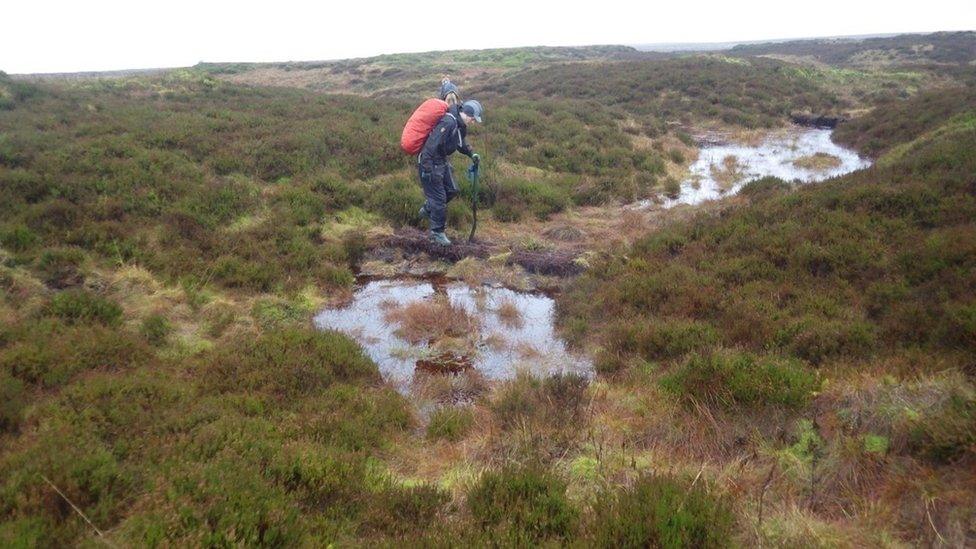
- Published24 February 2013
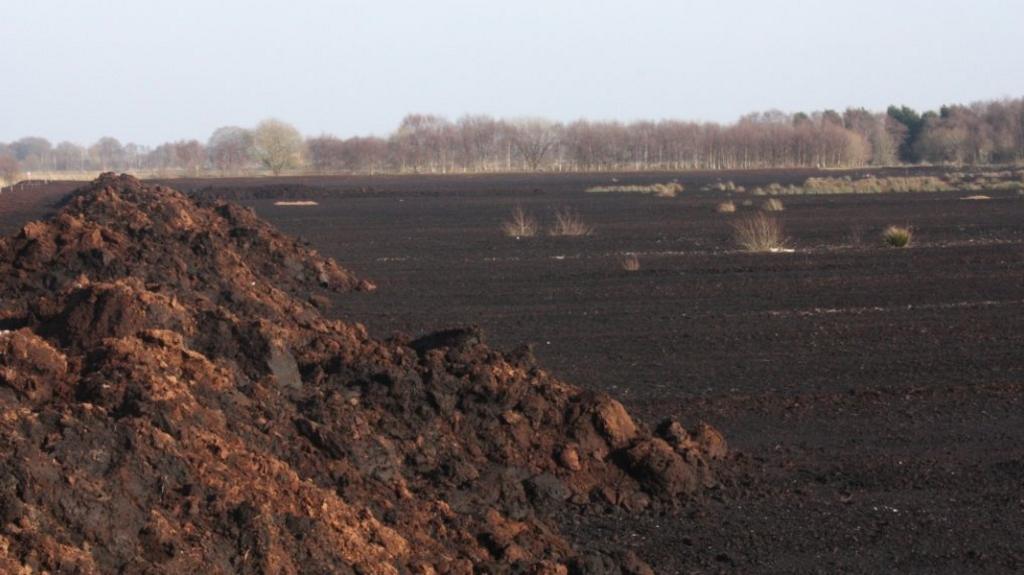
- Published9 November 2012
